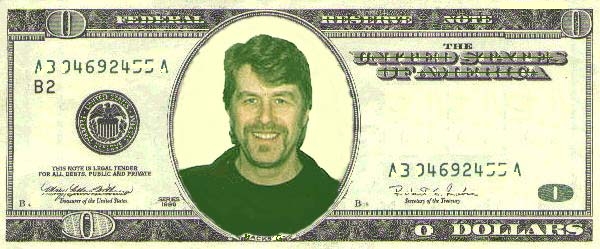![]()
![]()
![]() Copyright,
1999, Max K. Goff, all rights reserved
Copyright,
1999, Max K. Goff, all rights reserved
![]()
![]()
![]() Copyright,
1999, Max K. Goff, all rights reserved
Copyright,
1999, Max K. Goff, all rights reserved
I remember a laundry in Amsterdam -- the first time I went there was a summer day. And I went in again the following fall. Sometimes, when I travel, I enjoy going into a community and doing my own laundry, simply to learn something about the community. I've done it in Munich. I've done it in Paris. And I've done it in Amsterdam.The particular laundry was a few blocks from the hotel where I was staying, which was just a stones throw from the train station in central Amsterdam. It was run by a gentleman of unknown origin; his English simply wasn't good enough to facilitate a conversation. I'd guess Asian, but precisely where I cannot say. It doesn't matter. He did a fine job for me when I went in the second time and hired him to do my laundry for me. And he was patient the first time when I insisted upon doing my own laundry despite the fact that he had copious help there in his store to provide such services at no extra charge. But that first time, I learned something.
On the wall next to the folding bench in the laundry, the proprietor had taped various paper currencies from around the world. I think it was a matter of some pride for the fellow. Just as many small businesses in the U.S. frame their first dollar for proud display, this gentleman had posted a section of his wall, probably 4 feet wide by 2 feet high, with currencies from around the globe. And it was a bill on that wall that taught me the lesson.
As I was folding my laundry that first time, I spotted a bill on the wall that looked very much like the image of a bill I was handed in Dubai on a subsequentt trip, when I exchanged dollars for dirhams. It looked like this:
I was stunned the first time I saw the bill on the wall of that laundry in Amsterdam. I laughed. It appeared to me to be a "Zero" in value. Of course I didn't actually believe it had a value of $0 in whatever denomination it happened to be; I assumed it was from a character set that had different representations for digits. But the idea of a "Zero Dollar Bill" struck me as being kind of funny. So I laughed.
I went back to that laundry again the following fall, primarily to get my laundry done again, but also to see that Zero Dollar Bill and to show it to a fellow evangelist from Sun. And it was then that it occurred to me that a Zero Dollar Bill is really quite valuable -- it's good for the things money can't buy.
In Dubai I was reminded of those thoughts I'd had in Amsterdam. And having finally decoded the message (what appears to be a "0" on the above bill is simply Arabic for the "5" digit), I realized it was high time I shared my discovery.
The things of most value are free. What has always been true in a spiritual sense is the ultimate truth in cyberspace, and that basic law of the net is fundamentally changing the nature of capitalism. It's not easy to wrap one's brain around the idea of giving away valuable "stuff" as a viable business model for those of us schooled in the pre-Browser age. And yet, that is the nature of competition in this brave new world. So much of the net is free and more of the net is adopting free as the only viable approach to market share. Free email. Free fax numbers. Free web sites. Free PCs. Free long distance calls. This phenomenon, when coupled with the realization that information technology is becoming geometrically more pervasive in virtually every aspect of human activities, how can it not turn economies worldwide completely upside down? I believe there is an idea here whose time has come when it comes to educating those of us having some difficulty adjusting to the rules of this new game:

The Zero Dollar Bill -- Good for those things money can't buy.